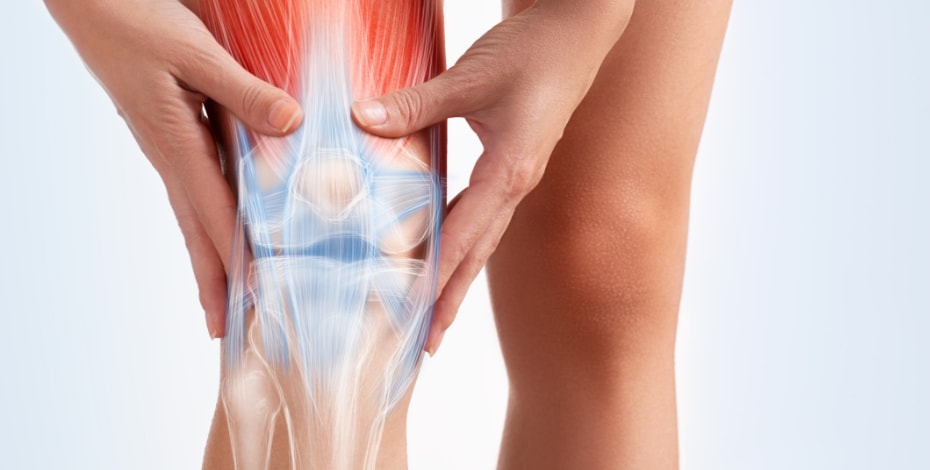
SUPER rehab for young people with old knees

Dr Adam Culvenor, APAM, summarises an NHMRC-funded project to evaluate the effectiveness of exercise therapy in preventing knee osteoarthritis in young adults following knee injury.
Young adults who suffer a serious knee injury, such as an anterior cruciate ligament (ACL) injury, are frequently faced with persistent pain, loss of function and impaired quality of life, and are at high risk of post-traumatic osteoarthritis—forcing them to live with old knees. Indeed, approximately 50 per cent of people will have radiographic knee osteoarthritis within the first decade after ACL injury. Surgical reconstruction does not reduce this risk.
Preventing knee injuries in the first place would reduce rates of post-traumatic osteoarthritis in young adults. However, despite the best efforts of primary prevention strategies, ACL injuries and subsequent reconstruction in young Australians have increased 200 per cent over the past 20 years. Considering the profound impact of knee injury and reconstruction, effective treatments targeting pain, function, quality of life and prevention of osteoarthritis are urgently needed.
Exercise-therapy and patient education that is targeted to individual needs, and appropriately supervised to optimise quality and progression, has potential to reduce the burden and healthcare costs associated with worsening pain, function, quality of life and osteoarthritis following ACL reconstruction. Preliminary evidence suggests that exercise therapy can improve knee cartilage quality in the early stages of osteoarthritis disease (ie, within the first five years after injury), which is important because once osteoarthritis is established (ie, visible radiographically), no treatment has been able to modify structural disease trajectory.
AIMS
Our research team at La Trobe University led by Professor Kay Crossley, in collaboration with researchers from Queensland University of Technology, Denmark and Holland, have recently secured a $1.4 million NHMRC Project Grant (2019–2024) to evaluate whether a Supervised exercise-therapy and Patient Education Rehabilitation (SUPER) program is superior to minimal intervention control (CONTROL) in people at high risk of post-traumatic osteoarthritis after ACL reconstruction, on KOOS4 (symptoms, pain, function, quality of life) and secondary osteoarthritis prevention (reduced worsening of cartilage quality and thickness on MRI) at four and 18 months. We hypothesise that SUPER will result in greater improvements in symptoms, pain, function and quality of life over four and 18 months and less osteoarthritis on MRI over 18 months, compared to CONTROL.
This project builds directly on our recent pilot randomised controlled trial, which was funded by the Physiotherapy Research Foundation (PRF) in 2016, where we tested the feasibility of our SUPER intervention in young adults following ACL reconstruction, the data from which informed our successful NHMRC grant proposal.
STUDY DESIGN
Our innovative, superiority randomised controlled trial will recruit 184 young adults aged between 18 and 40 years with persistent symptoms and poor function (as assessed with the KOOS4 score) 9–24 months after ACL reconstruction. The SUPER group will receive physiotherapist- led progressive exercise therapy (two times per week for four months), whereas the minimal intervention CONTROL group will receive an education booklet only.
The exercise therapy program will target muscle strength and address functional impairments and be matched to each patient’s preferences, goals and clinical presentation. The three key components (lower limb and trunk muscle strength, movement quality, and sport- or activity- specific retraining) have phases of increasing difficulty. These will be combined with individualised health education regarding expectations and goals, improving adherence, long-term outcomes, weight control, and appropriate physical, occupational and sporting activity promotion.
The primary outcome is change in KOOS4 (symptoms, pain, function, quality of life) at four months. Secondary outcomes include change in KOOS4 at 12 and 18 months, change in cartilage quality and thickness at four and 18 months, and cost-effectiveness of the SUPER intervention.
OUTCOMES AND SIGNIFICANCE
We will evaluate a comprehensive education and exercise therapy intervention for people with post-traumatic knee osteoarthritis. By improving patient outcomes beyond the unacceptable levels currently experienced, we will enable greater participation in work, physical, family and social activities. These improvements in outcomes are integral to a productive and available Australian workforce and facilitating healthy ageing.
If we succeed in reducing the rates of osteoarthritis worsening, we will be the first to modify the trajectory of post-traumatic structural osteoarthritis disease with an exercise therapy intervention. Our results will have potential for longer term outcomes, including reducing the risk of early joint replacement.
Opportunity to be involved:
As part of this clinical trial, a PhD scholarship is available at La Trobe University for an interested and passionate physiotherapist to help coordinate the project. If this is you, contact Dr Adam Culvenor at a.culvenor@latrobe.edu.au.
© Copyright 2024 by Australian Physiotherapy Association. All rights reserved.





